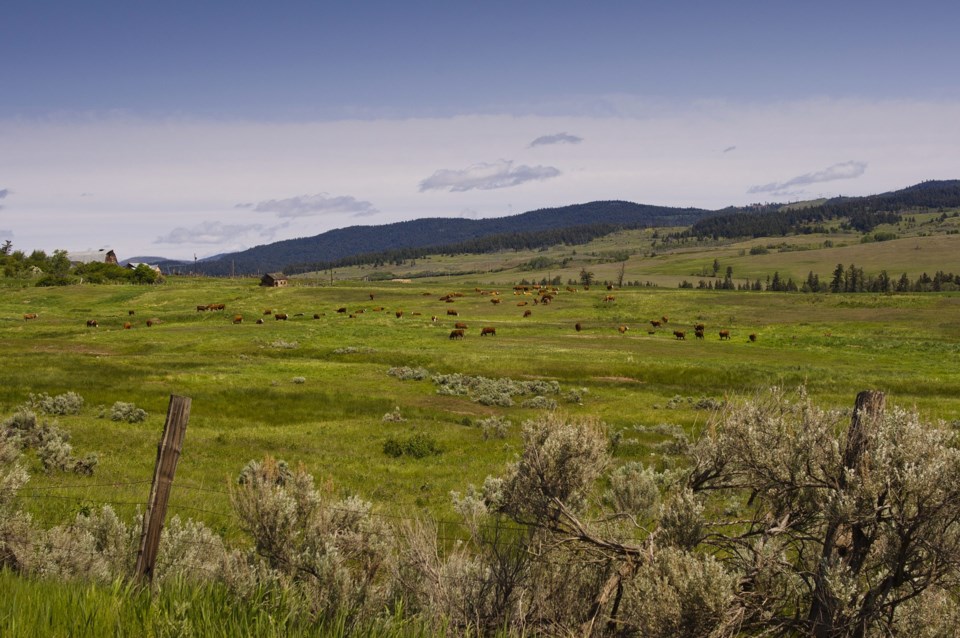It was celebrated at the time as a David and Goliath story of the great outdoors.
In 2018 a B.C. Supreme Court judge sided with the Nicola Valley Fish and Game Club against the Douglas Lake Cattle Company owned by American billionaire real estate tycoon Stan Kroenke.
Following a 15-year battle, the court rejected Douglas Lake’s claims that it owned the lakes, the fish in the lakes, and the roads in to reach them. The court confirmed public access to the lakes, and said the ranch had no right to erect locked gates blocking access.
With billion-dollar-deep pockets, we should have known it was too soon to celebrate.
Now the B.C. Court of Appeal says sure, the public owns the lakes and the fish in them. But the ranch can block members of the public from cross its property to access theirs because… wait for it… the provincial government has failed for decades to enact any legislation protecting public access.
It’s called the “right to roam,” a legally recognized right for members of the public to cross privately owned wild lands to access Crown land.
You can’t trudge up on someone’s lawn or across a planted field; you can’t set up camp in their pasture; you can’t leave gates open or leave your garbage lying around or cause any damage – but you can cross a road or trail through private but uncultivated land to reach Crown lands.
Other jurisdictions apparently haven’t been beset with the crushing struggle that has tied British Columbia’s hands on the issue.
In 1217, King Henry III of England enacted the Charter of the Forests, guaranteeing common folk the right to access Crown forests to “gather wood and honey,” according to a this review by the University of Victoria’s Environmental Law Clinic.
Scotland has similarly enshrined public access rights, as have Sweden, Norway, Finland, Austria, Latvia, Switzerland, New Zealand, and the list the goes on.
Here at home, Nova Scotia has legislation protecting the right of members of the public to cross private, uncultivated land to access lakes and rivers for fishing; in Newfoundland, whether by law or by goodwill, members of the public have oceanfront access and thousands of miles of waterfront hiking trails.
A public access law for B.C. has been recommended again and again and again since at least a special committee report made that recommendation in 1962.
In 2017, then-Green Party leader Andrew Weaver introduced a private members’ bill, the Right to Roam Act. It died on the order paper.
Outdoor Recreation Council of B.C. points out that the appeal court decision in the Douglas Lake Cattle Company case has repercussions well beyond the ranch’s fence line.
More than 94 per cent of the land in B.C. is Crown land, the council points out, but there are an increasing number of cases where the public is denied access.
On Vancouver Island, in particular, the Pemberton Valley, in Garibaldi Park near Whistler-Blackcomb, there are a number of conflicts brewing over public access.
It’s worth mentioning that Kroenke (also, incidentally, the owner of the LA Rams NFL team, the Colorado Avalanche of the NHL, the Denver Nuggets of the NBA, and Britain’s Arsenal football club) is B.C.’s largest landowner. His ranch holdings in this province include the historic Alkali Lake Ranch, James Cattle Company, Riske Creek Ranching and the Quilchena Cattle Company, in addition to Douglas Lake Ranch, and add up to 271,000 acres of privately owned ranch lands and more than 1,023,000 acres of publicly owned Crown grazing lands and the water rights that go with them. This is because B.C. is one of the few jurisdictions in Canada with no restrictions on foreign ownership of agricultural lands.
“We are concerned that many traditional trails and roads to public lands, lakes and rivers that the public have used for generations are gradually disappearing in BC as landowners destroy them by plowing them up or putting up fences and no trespassing signs,” the outdoor recreation council said in a statement. “Many rural roads are directly or indirectly subsidized by public money and should remain publicly accessible.”
The original B.C. Supreme Court judge in his decision four years ago advocated for a right of public access to lakes on private land, a point highlighted by the appeal court itself, which went on to say that the UVic Environmental Law Clinic “advanced a strong argument for the adoption of public access legislation in British Columbia.”
Alas, none was forthcoming.
The Nicola Valley Fish and Game Club told iNFOnews.ca that it will appeal the decision to the country’s highest court.
Dene Moore is an award-winning journalist and writer. A news editor and reporter for The Canadian Press news agency for 16 years, Moore is now a freelance journalist living in the South Cariboo. Moore’s two decades in daily journalism took her as far afield as Kandahar as a war correspondent and the Innu communities of Labrador. She has worked in newsrooms in Vancouver, Montreal, Regina, Saskatoon, St. John’s and Edmonton. She has been published in the Globe and Mail, Maclean’s magazine, the New York Times and the Toronto Star, among others. She is a Habs fan and believes this is the year.
SWIM ON:
- Last week, Dene Moore wrote about the Pouce Coupe Affair, and how it shows more accountability is needed for municipal leaders.
- BC's biggest landowner, Stan Kroenke, has come up before in these pages.
- The Right to Roam Act, a private member's bill, was one of the last pieces of legislation introduced by former Green leader Andrew Weaver before he left politics.



